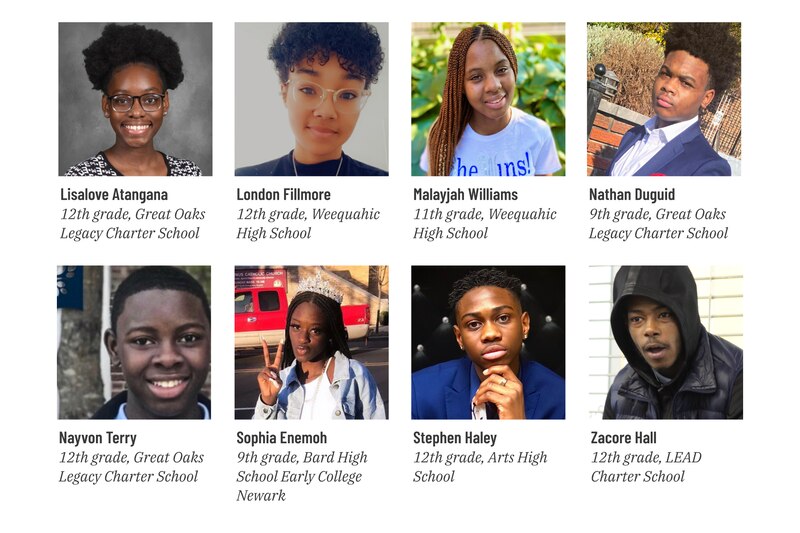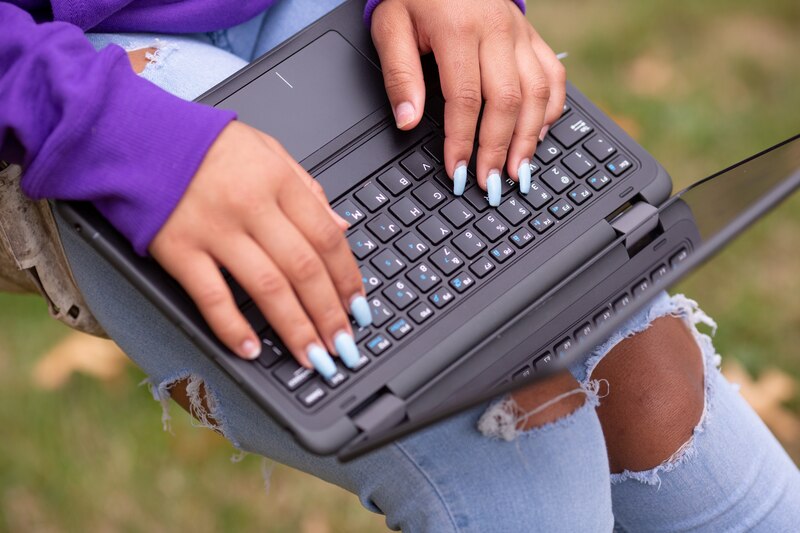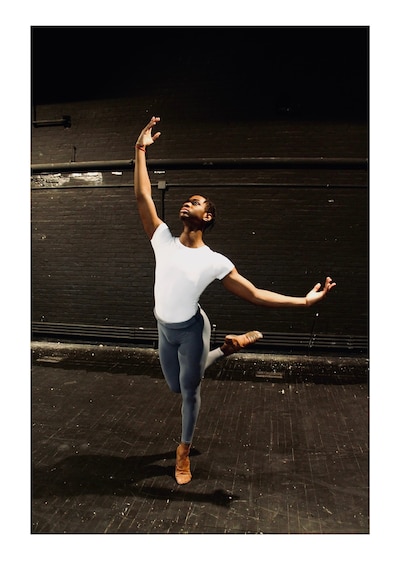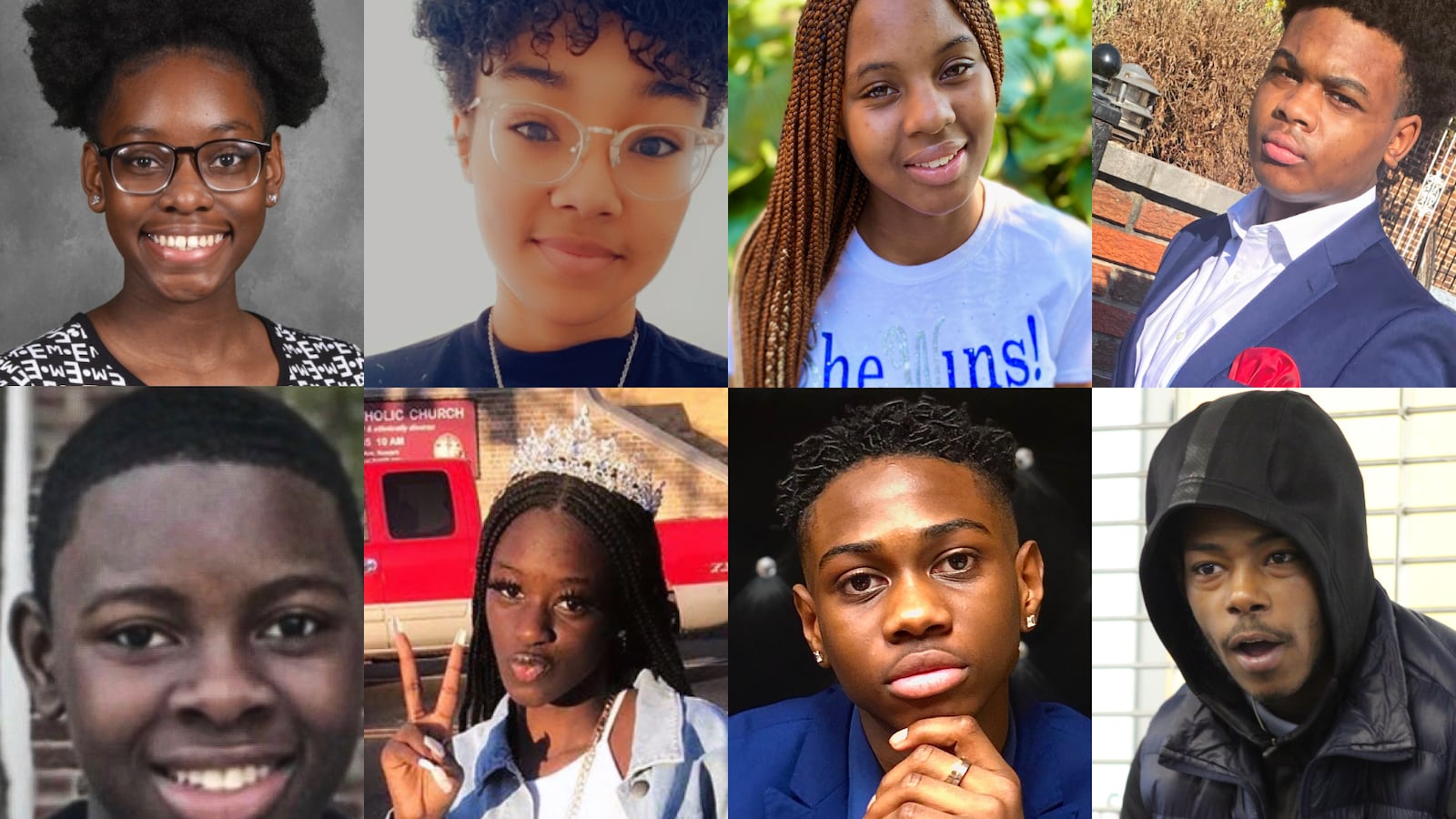The pandemic has spared no student from its grasp. If asked, every young person could share a story about how the crisis rearranged their life and learning this past year.
In Newark, where the coronavirus has mounted a relentless assault, the stories have been heartrending.
Lisalove Atangana’s mother lost her job this fall, and her family had to cram into motel rooms while they searched for affordable housing. Stephen Haley, who has spent years training as a dancer, turned his living room into a makeshift dance studio yet still felt his skills slipping away. Nayvon Terry, an ambitious teenager who had maintained a 4.0 grade point average and planned to run for senior class president, watched his motivation dwindle and his grades decline. And Sophia Enemoh, stuck at home away from her friends and teachers, mourned the loss of the freshman year she’d always imagined.
“I miss everything,” she said.
And yet, like so many others in Newark and beyond, these young people have persisted. They’ve logged onto virtual classes even while looking after younger siblings. They’ve stayed connected to classmates and committed to school. And they’ve learned important lessons about themselves and the world amid the upheaval of the past year.
Chalkbeat spoke with those four Newark high schoolers and a dozen others over the past few months to hear firsthand how the pandemic has transformed their lives, both in and out of school. More changes are in store next week when Newark school buildings reopen — though just under 40% of district students, and only 28% of high schoolers, are registered to return.
The following are excerpts from those interviews, which were conducted individually and in groups, and organized here by topic. They offer a window into the hardships many students experienced over the past year, as well as their determination to make it through.

Disruption
Sophia: I started my freshman year virtually, and that’s the hardest part. I’m telling you, the first day of high school, everybody was lost, everybody didn’t know what to do.
Nayvon: I’m the type of personality where I like to get up and go and do things. I love to be on top of things. I love to be interactive with the students and the teachers. And I haven’t been able to do that.
Brianna: I feel like I wake up and do the same thing every single day. It gets to the point where sometimes I feel like my days are blended. Like a whole week could pass by and I wouldn’t even notice because I’m doing the same routine every day.
Nathan: I don’t go anywhere at this point. The only place I might go is church on the weekends. Even that, they’re so cautious and everything. There’s no, like, hanging out afterwards.
Zacore: Six months ago, I just had a daughter. So my days are more or less me and my daughter. I sit in the living room, I do my [school]work. I’m here with my baby mother, my girlfriend. She helps me if I need help. But most of this stuff I try to work out on my own.
Lisalove: We were spending months in motels trying to look for homes. That was really rough. … It also took a toll on us as a family because sometimes we would just get mad at each other or just be so frustrated and stressed out because of how we’re living right now.
Nathan: My mother never stopped working because she works in the medical field. The stress and anxiety that she had to deal with was visible, it was audible, whenever she came home. On top of that, multiple members of my family had COVID at one time or another.
Sophia: I barely know what my own high school looks like. And that’s a high school I’m supposed to go to, but now I’m in my bed during school. And it’s just like I miss school, I miss walking through the hallways, I miss going to my friend’s house. ... I miss everything.

Virtual learning
Nathan: In the beginning, it took my brain and my body a while to realize that you’re at home but you still have to work, you still have to go to school. Because before this, if I was staying home, it meant relaxing.
Stephen: In my opinion, it’s not school. It just doesn’t feel like school at all. If you ask me, it’s all about retention now and not necessarily learning.
Lisalove: My second class, I have my Spanish teacher and she wants all of us to be on camera and visible. So that’s one class I can’t escape and be in the dark in my bedroom laying down.
Stephen: Sometimes I don’t even get out of bed and I just join from my bed. Sometimes I wouldn’t even have the energy to log on and I’ll miss a period. It’s definitely harder to stay motivated.
Sophia: The teacher will ask a question and it’s just quiet. I feel like I’m the only one to talk in class even when I feel like I’m the dumbest one. Because everyone will act like they get it and not say nothing.
Brianna: In my household, there’s just a lot of distractions. You know, technology and all that. And it gets very hard to log into every class and be like, “I got to do this,” and not just, like, ignore all my classes for the whole day and go watch Netflix.
London: When you’re the oldest [child], like I am, and everyone’s breaks are at different times, the children can come ask me for something but I’m in the middle of class. … They’ll ask me to make them something to eat. Or if it’s school-related, they’ll ask me to help with, like, a math problem. That one I usually get a lot.
Sophia: Teachers don’t know why your camera is off and they call you. They think you’re skipping class or you’re late on purpose or you’re not listening. Mind you, I’m trying to listen but I have to help my little sister.
Lisalove: It just takes so many hours for me to really get stuff done because I’m around my family and something might catch my attention and I’ll get distracted.
Sierra: It’s honestly not healthy at all. I don’t get away from my computer until 12 o’clock at night. … And then, on the weekend, you’re so tired to the point where you just want to sleep all day.
Nayvon: The momentum and the motivation stopped, so I didn’t want to study for the SAT. … We would also have a program where we could study for the SAT, almost SAT prep. That stopped. So when I did take the SAT, it wasn’t the score that I wanted and that I know I deserve.
Luke: There’s not a lot of motivation sitting in front of a computer for about eight hours a day — on top of COVID, on top of not seeing your friends or your teachers. I think that’s the largest issue about online learning: There’s not much motivation to do anything, but it’s not like you have a choice.
Malayjah: I used to be good in school, and then after awhile with the virtual I just started giving up. Because I feel like the teachers wasn’t really helping me.
London: For most of my schooling, it’s been teachers interacting with me. And [now] I’ve found it hard to do things without instruction. It’s been difficult for me to do things self-taught.
Nayvon: There’s no relationships and bonds being built. So the connection and excitement for school isn’t the same.
Zacore: I try to stay as focused as possible. I read, I watch a lot of YouTube, just keep my mind active. … In this day and age with technology, everything is free. These resources we have, I can easily Google it and figure it out and try it so many times until eventually I get it right.
Loss
Sierra: I was going to use this last year to let me branch out a little bit, let me explore my freedoms as a young adult. And then once this happened, it was like that was all gone.
Nayvon: A lot of things were ripped away from me. … The previous year I went to an internship at Ernst & Young. I thought I would be doing that again. … I’ve always dreamt of running for class president my senior year, being able to plan our prom … There’s a lot of things that I’ve had to leave behind.

Stephen: It’s really hard being a dancer in quarantine — especially when you don’t have the studio to work in. You don’t dance, basically. … I’ve regressed, you know. And I’m not where I should be in my development as a dancer.
Sophia: Now I’m a freshman and I’m pissed because I did not have my eighth grade social. My dress was on the way and I had to cancel the order. I cried because I was so ready.
Brianna: A couple months ago, my uncle, he got diagnosed with COVID. At first they didn’t know what it was because, you know, people were still gathering information. He had to go to the hospital … A couple days later he died from that. It’s just been really hard on my family. Especially my mom. My mom has a lot of brothers and sisters and she’s very close with all of them, especially my uncle. And just seeing her go through that, it really hurt me.
Sierra: I had to sit down and think about, “Oh, I’ve had so many deaths in my family.” … I have a hard time coping with death itself and grief. I feel like everybody grieves in a different way. It’s hard. It’s like you’re not taught how to to grieve. You’re not taught how to deal with your emotions. It’s like something you have to deal with yourself.
Stephen: Thankfully I haven’t been hit as hard as some of my friends. But I know some of my friends who actually thought about suicide. They couldn’t take the isolation anymore. I know people who grew depressed. They just feel so alone, and everything is just so sad in this world.
Lessons
Stephen: I find myself going through my camera roll remembering all the good times I had in school. And it’s like, wow, I really should have just stayed there and enjoyed it. … So if COVID taught me anything, it would be to take my time and enjoy these moments, because you never know when you’re going to have another one.
Lisalove: Even though it was kind of a curse and a really bad situation, it kind of brought us together. Because now we know we can really count on each other and really strengthen our bond as a family. Spending all that time — every single day, every single hour — being in that space, probably even getting to know each other even more than before. … Yeah, things were stressful. But at the same time, I was still able to laugh with my family, to have those good times.
London: When everything came down to it, I really had to learn a lot of skills that I wouldn’t necessarily have had to learn until college. Like time management. … With everything virtual, it’s definitely made me a lot stricter on myself with getting things done.
Nayvon: Just being really honest, I would say I strived for success for the wrong reasons. Such as, like, getting the award or just getting the praise and the acknowledgement. But now all that’s been stripped away. I have to regroup and find out what it is that I’m really striving for success for. Now I’m striving for success to better my future, to instill a different life than what my family has been used to.
Zacore: Sometimes isolation is your best friend. You don’t need to be outside and running around. You can sit sometimes and just learn about yourself, focus on yourself, and really take time to love yourself. … It gives you a chance to go to the next direction. Like a chance to do something new. Or a chance to be somebody new.
Stephen: I just hope that whatever comes next, I get to fully enjoy it. That’s all. I’m just ready to enjoy life again.
This project was a collaboration between Chalkbeat, The Newark News and Story Collaborative at WBGO, and Free Press.
The following individuals and organizations provided assistance: Deborah Smith-Gregory, Great Oaks Legacy Charter School, LEAD Charter School, Schools That Can-Newark, and SHE Wins Inc. These students also participated in interviews: Abriyah Julu, Lakita Lloyd, Nyla Mitchell, Taniyah Ferrell, and Zerlina Sutton.

